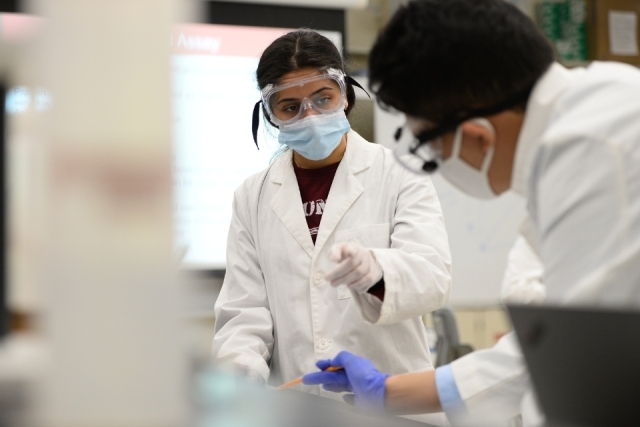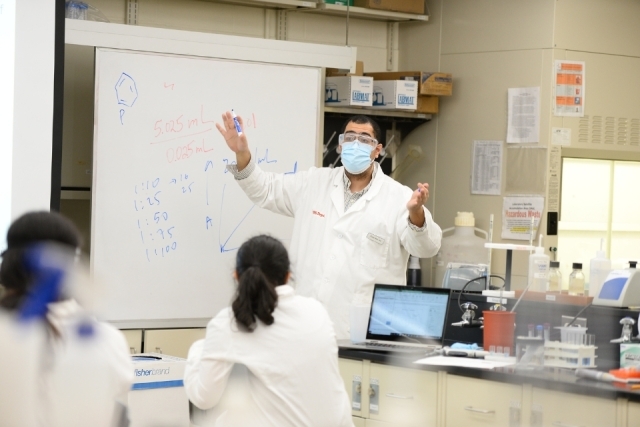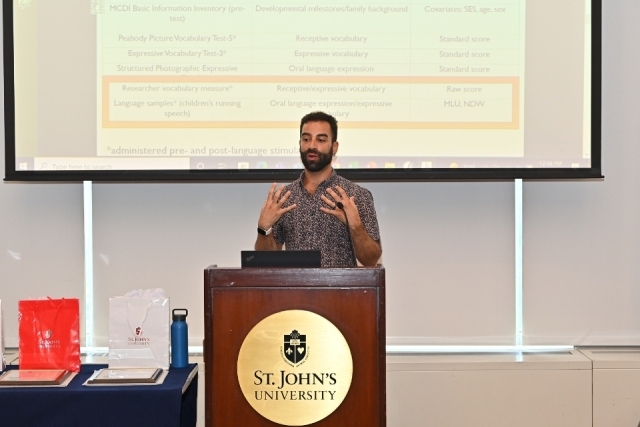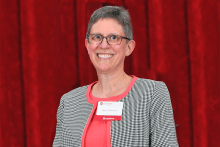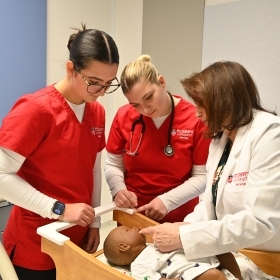Unique Career Paths with a Master's in Neuroscience

The field of neuroscience opens you to a world of exciting career opportunities that extend beyond the laboratory. You can educate future scientists in the classroom, help nonprofits fund research, work as an artist who understands how the brain sees or hears things, and even influence laws and regulatory systems focused on new biological techniques.
Which career path in neuroscience is right for you?
This question is a loaded one, as choosing a career focus is complex and not a decision you make overnight. You may spend hours reading through forums, watching videos, asking peers for advice, and searching for the correct answer—and still feel stuck. However, choosing a career focus is a crucial step that guides your choice of future coursework and helps pave the way for other essential steps needed to reach your goal.
So, whether you’ve mapped out your 10-year plan or haven’t yet found your passion, the following are several great career options for those with a Master of Science degree in Neuroscience.
1. You are Data-Driven and a Deep Thinker.
If you enjoy learning about the very essence and process of things, then consider a career as a neuroscientist.
What to expect: Neuroscientists are at the center of the action, studying new facts about the brain, spinal cord, nervous system, and nerve cells. On a typical day, a neuroscientist may conduct experiments, study samples, research new treatments, and work with other medical specialists to test and trial new drug treatments.
The St. John's Neuroscience Research Group
2 and 3. You Have a Passion for Helping People.
If you envision a career that combines science and working directly with patients, consider speech-language pathology or audiology.
What to expect: Speech-language pathologists and audiologists are great patient-facing options for helping a diverse client base. One significant distinction between the two roles is that speech pathologists diagnose speech, language, communication, and swallowing disorders, often working in educational settings. In contrast, radiologists tend to work in a clinical environment and treat patients with hearing disorders and balance problems.
4. You Enjoy Inspiring and Educating Others.
If nurturing curiosity excites you, then consider a rewarding path as a science educator.
What to expect: Science educators can teach in various work settings and with a wide range of age groups—all with the same goal in mind: to guide students to explore and better understand scientific concepts and theories.
Read how Shruti Deshpande, Ph.D., CCC-A, helps students learn about audiology and guides their career path.
5. You Love Telling a Compelling Story.
If you’ve mastered the art of simplifying complex ideas and find yourself diving into the latest science news, consider the booming industry of science journalism.
What to expect: Science journalists present information to the public about the research being performed by scientists. A science journalist may write articles for science magazines, trade publications, technical journals, newspapers, or the general media (e.g., radio, television, and blogs).
6. You Dream of Leading Positive Change.
If you are willing to fight for the future of science and the funding of vital research and development, consider a career in government advocacy and policy.
What to expect: Science advocates review laws, regulatory systems, and programs governing new biological practices. They have roles in various settings such as government offices, grant administrator offices, global health organizations such as the World Health Organization, or public affairs committees such as the Society for Neuroscience.
7. You Find Purpose in Guiding Others.
If you are a great listener with a compassionate solution-oriented mindset, consider making an impact as a behavioral disorder counselor.
What to expect: Behavior disorder counselors work in various settings to help guide patients battling physical and social behavioral disorders such as alcoholism, drug addiction, depression, obsessive-compulsive disorder, and attention-deficit/hyperactivity disorder. On a typical day, counselors work with patients to guide them through their recovery or reach a behavioral milestone.
Want to learn more about a degree in neuroscience?
Contact Alison Hyslop, Ph.D., Program Coordinator; Associate Dean, Graduate Division; and Professor, Department of Chemistry.

